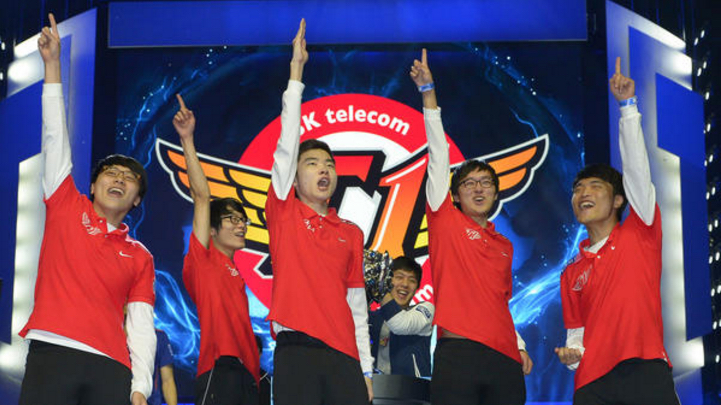![SKT, pictured here after winning the 2013 LoL World Series at Los Angeles’ Staples Center, competes today in the 2015 Series. [Mark J. Terrill/AP]](http://www.jstudentboard.com/reporter/wp-content/uploads/2015/10/videots-300x169.jpg)
This is the World Series for one of the most popular games of our time, League of Legends (LoL), and its final round is being played today in Berlin between two South Korean teams: SK Telecom Team 1 (SKT) and the KOO Tigers.
Last year, I had the chance to attend the LoL World Series at the 45,000 seat Seoul World Cup Stadium. The stadium was packed, not just with South Koreans but with people from all over the world. The LoL World Series reflects a paradigm shift within the current generation, as professional video games are more commonly viewed as e-sports.
“A lot of people think it’s geeky to go watch an LoL professional game in a sports stadium, but it’s actually no different from a real sport,” said Alex Cho, a student at Seoul International School (SIS) who also attended the previous World Series. “All the basic aspects of sports are there: a huge crowd, team cooperation, the strong urge to win and be victorious… It’s definitely become a huge sensational trend in our time.”
In fact, several celebrities endorse the enjoyment of the game as well including actor Simon Pegg and former NFL player Chris Kluwe. The last World Series even hosted a concert by Imagine Dragons, who collaborated with LoL to dedicate a song called “Warriors.”
“E-Sports is really this burgeoning culture of actual sports in that you have young adults competing in a team oriented fashion,” said Kluwe in a 2013 interview with Polygon. “People are starting to realize, ‘hey, this is something I can watch. This is something I can be entertained by, and this is something I can do. I can play League with my friends and then when I watch the professionals do it, it’s really fun because I know what they’re doing.'”
LoL is also connecting players throughout the global stage, as players come from various corners of the world such as North America, Europe, South Korea, China, and Taiwan. The most skilled teams are often from Asia, as reflected by the all-Korean final this year. One of the best South Korean players, known as Faker, has even attained celebrity status within the gaming community and is known by players from around the world. Regardless of where they are held, games can draw millions of online viewers from distant places, and players can transcend linguistic barriers through the common language of the game.
“It’s amazing to watch people from all over Europe, and the world, gather in one stadium,” said Cheryn Shin, another student at SIS. “I watch live from Youtube, but it makes me want to be there in the middle of all the hype. It’s like a world tour for the teams, and it feels like a dream.”

